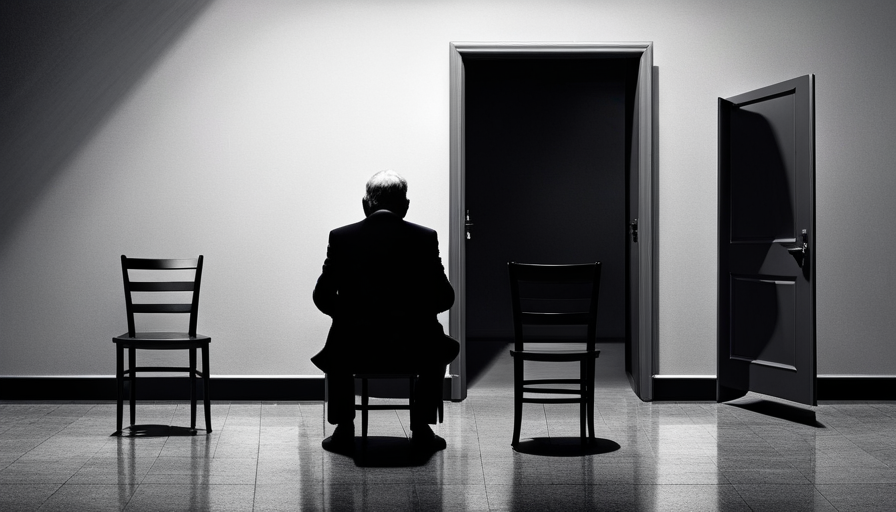Can Isolation Cause Social Anxiety
Picture yourself standing alone in a crowded room, feeling a wave of unease wash over you. The isolation you’ve…

Picture yourself standing alone in a crowded room, feeling a wave of unease wash over you. The isolation you’ve experienced lately has taken its toll, leaving you wondering: can isolation cause social anxiety?
In this article, we will explore the connection between isolation and social anxiety, shedding light on the impact it has on our mental well-being. Drawing from evidence-based research, we will delve into coping strategies and ways to prevent and manage social anxiety during times of isolation.
Get ready to gain a deeper understanding of this complex issue.
Key Takeaways
- Isolation can trigger heightened unease and apprehension, leading to the development of social anxiety.
- Prolonged isolation deprives individuals of necessary social interactions for healthy relationships, increasing stress and anxiety levels.
- Social anxiety caused by isolation can have negative impacts on mental well-being, including depression, anxiety, and low self-esteem.
- Effective coping strategies for dealing with isolation and social anxiety include practicing mindfulness, challenging negative thoughts, staying connected virtually, and maintaining a routine.
Understanding Social Anxiety
Do you understand social anxiety? It is a condition characterized by intense fear and discomfort in social situations. The causes of social anxiety can vary, but they often include a combination of genetic, environmental, and psychological factors.
Some individuals may have a genetic predisposition to developing social anxiety, while others may develop it as a result of negative experiences or learned behaviors. The impact of social anxiety on individuals can be significant; it can lead to feelings of isolation, low self-esteem, and difficulty forming relationships. Socially anxious individuals may also experience physical symptoms such as rapid heartbeat and sweating when faced with social situations.
Understanding the causes and impact of social anxiety is crucial in addressing this condition effectively.
Moving forward into the subsequent section about the effects of isolation on mental well-being…
The Effects of Isolation on Mental Well-being
You may experience negative effects on your mental well-being as a result of being isolated. Loneliness can have a significant impact on your overall emotional state and can lead to feelings of depression, anxiety, and low self-esteem.
When you are isolated, it becomes more difficult to maintain healthy relationships with others, leading to a decrease in social support and an increase in feelings of loneliness.
Additionally, isolation can make it harder for you to develop new connections and engage in activities that bring you joy or fulfillment. The lack of social interaction can also contribute to a decline in cognitive function and an increased risk of developing mental health disorders such as social anxiety.
Understanding the effects of isolation on your mental well-being is crucial in recognizing its potential role as a trigger for social anxiety.
Isolation as a Trigger for Social Anxiety
Isolated individuals may find themselves facing heightened feelings of unease and apprehension due to their lack of social connection. Isolation’s role in triggering social anxiety is well-documented, as it deprives individuals of the social interactions necessary for developing and maintaining healthy relationships. Research shows that prolonged periods of isolation can lead to increased levels of stress and anxiety, which can manifest as symptoms of social anxiety disorder. A study conducted by Psychiatric Quarterly found that individuals who experienced long-term isolation were more likely to exhibit symptoms such as fear, avoidance, and discomfort in social situations. This suggests a strong correlation between isolation and the development of social anxiety. Understanding these triggers can help us develop effective coping strategies for dealing with both isolation and social anxiety. Transitioning into the next section, it is important to explore various techniques that can help individuals manage these challenges effectively without feeling overwhelmed.
Coping Strategies for Dealing with Isolation and Social Anxiety
One effective way to manage feelings of isolation and social anxiety is by implementing coping strategies. These strategies can help individuals navigate their emotions and develop resilience in the face of challenging situations.
Here are four helpful techniques to consider:
-
Practice mindfulness: Engaging in activities like meditation or deep breathing exercises can help you stay present and reduce anxiety.
-
Challenge negative thoughts: Cognitive behavioral therapy (CBT) techniques can help reframe negative thinking patterns and promote more positive self-talk.
-
Stay connected virtually: Online support groups provide a platform for individuals to connect with others who may be going through similar experiences, offering empathy, validation, and advice.
-
Maintain a routine: Establishing a structured daily routine can create a sense of stability and purpose, helping to alleviate feelings of isolation.
By incorporating these coping strategies into your daily life, you can better prevent and manage social anxiety in isolation without feeling overwhelmed or consumed by fear.
Preventing and Managing Social Anxiety in Isolation
To prevent and manage social anxiety in isolation, it’s important for you to engage in social activities and hobbies. This can help you maintain a sense of connection with others and alleviate feelings of loneliness.
Additionally, practicing self-care and mindfulness techniques can provide you with tools to manage stress and anxiety, improving your overall well-being.
Engaging in social activities and hobbies
Engaging in social activities and hobbies can help alleviate social anxiety. Here are five ways to do so:
-
Exploring creative outlets: Whether it’s painting, writing, or playing a musical instrument, engaging in creative activities can provide a sense of accomplishment and boost self-esteem.
-
Joining virtual communities: Online platforms offer opportunities to connect with like-minded individuals who share similar interests. Participating in forums or joining virtual hobby groups allows for meaningful interactions without the pressure of face-to-face encounters.
-
Trying new things: Stepping out of your comfort zone by trying new activities or hobbies can help build confidence and reduce social anxiety over time.
-
Volunteering: Engaging in volunteer work not only provides a sense of purpose but also offers opportunities to interact with others while making a positive impact on the community.
-
Exercising regularly: Physical activity has been shown to reduce symptoms of anxiety and depression. Engaging in regular exercise can improve mood, increase self-confidence, and promote overall well-being.
By incorporating these strategies into your daily routine, you can gradually overcome social anxiety and enhance your mental well-being.
Transitioning into practicing self-care and mindfulness techniques will further support your journey towards managing social anxiety effectively.
Practicing self-care and mindfulness techniques
Engaging in social activities and hobbies can be a great way to combat social anxiety caused by isolation. However, sometimes it may not be possible or feasible to always engage in these activities. During such times, practicing self-care and mindfulness techniques can provide significant relief. Mindfulness exercises help individuals to focus their attention on the present moment, reducing feelings of anxiety and stress. Simple practices like deep breathing, meditation, and body scanning can be effective in calming the mind and promoting relaxation.
Self-care practices also play a crucial role in managing social anxiety. Taking care of oneself physically, emotionally, and mentally is essential for overall well-being. Engaging in activities that bring joy and relaxation, such as reading a book, taking a warm bath, or listening to music, can help alleviate symptoms of social anxiety.
By incorporating mindfulness exercises and self-care practices into one’s daily routine, individuals can effectively manage social anxiety caused by isolation.
Conclusion
In conclusion, isolation can indeed cause social anxiety. The effects of being cut off from social interactions and support systems can have a detrimental impact on mental well-being. The lack of connection and interaction with others can trigger feelings of loneliness, self-doubt, and fear of judgment.
However, by implementing coping strategies like maintaining a routine, engaging in self-care activities, and seeking virtual support networks, individuals can effectively manage social anxiety during isolation.
Remember, just as a flower needs sunlight to bloom, humans thrive when connected to others.





